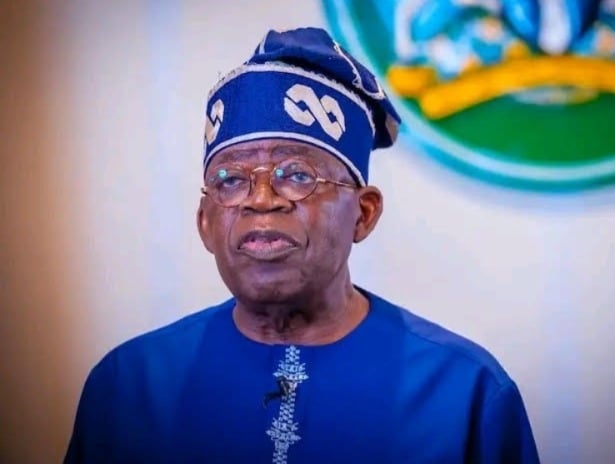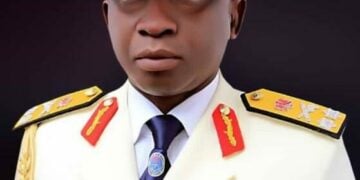As Nigeria commemorates 65 years of independence from colonial rule, some civil society organisations and political scientists believe failed leadership is the fundamental cause of the country’s enduring underdevelopment, widespread poverty, and systemic dysfunction.
For those who hold this view, the country’s post-independence trajectory has been marred by unaccountable governance, entrenched corruption and a chronic absence of visionary leadership.
For them, this key deficiency is at the heart of Nigeria’s socioeconomic stagnation in the midst of immense human and natural resource endowments.
This notion is not new, but has remained a puzzling reality for decades, restricting a country often ascribed as the giant of Africa, to the shadow of its potential.
But others who spoke with LEADERSHIP Weekend in the build-up to October 1 however argued that followers also share in the blame for the state of the country.
They argue that the quality of leaders is merely a reflection of the people they emerge from. They consider the tendency to hurriedly blame leaders as an unfair gesture.
When Nigeria hoisted its green-white-green flag in 1960, it did so alongside nations like South Korea and Singapore. At the time, Nigeria was tipped as a future global powerhouse. Yet, 65 years later, while those countries have transformed into industrial and technological giants, Nigeria remains trapped in cycles of corruption, insecurity, poverty and infrastructural decay.
Coups, a civil war and military incursion into political leadership have often been blamed for distorting the country’s development and growth between the First and Third Republics.
However, since the Fourth Republic which began with the return to democratic rule in 1999, many pundits argue that the country has fared any better.
Despite having the longest spell of civilian rule since 1960 (26 years), the quality of socio-economic development has not matched the enormous resources in the country.
If anything, some would argue that the country has been on an almost steady backward slide, despite the increase in yearly budgetary allocations and recent huge debt profile.
From the power to the education and health sectors, the tales have been appalling. The decade-long crises in these critical sectors are compounded by the lingering drastic insecurity in most parts of the country. These have led to mass migration of young Nigerians to Europe and the United States, and in recent times neighbouring African countries which between the 70s and early 80s looked up to Nigeria for salvation.
Recently, a “Nigeria must go protest”, demanding the exit of Nigerians from Ghana, erupted. For some years, Nigerians had been the subject of physical attacks in South Africa.
On the political front, the ruling All Progressives Congress (APC) and the former ruling party, the Peoples Democratic Party (PDP) have presided over the country for the whole of the 26 years. Interestingly, both parties, often described as two sides of a coin, regularly exchanged members at the slightest provocation, hence the concern of a broken political system, which allegedly thrives on corruption and abuse of power.
The crop of Nigeria’s leadership has emerged from these two parties, which on the aggregate have produced 90 percent of the current political leaders in the country.
Yes, leaders failed Nigeria – Ex-IPAC Chairman, Ameh
Speaking with LEADERSHIP Weekend, former national chairman of the Inter-Party Advisory Council (IPAC), Chief Peter Ameh, said the crux of Nigeria’s stagnation lies squarely with its leadership.
Ameh, who is the national secretary of the Coalition of United Political Parties (CUPP), argued that despite the abundant natural and human resources at Nigeria’s disposal, poor governance has squandered opportunities, leaving the country lagging far behind its potential.
“My point of argument is that the leaders, not the led, are the primary architects of Nigeria’s failures. Since independence in 1960, successive administrations have treated the nation’s treasury as a personal piggy bank, diverting billions meant for public welfare into private coffers,” Ameh stated.
Leaders emerge from the people – Otitoleke
However, a senior special assistant to the Kogi State governor on Drug Rehabilitation, Comrade Richard Otitoleke, said Nigeria’s challenges cannot be attributed solely to leadership failures, as leaders themselves emerge from the wider society.
“Every leader you see today in Nigeria is a product of the general Nigerian people. There is no importation of any leadership in Nigeria,” he said.
He continued, “We cannot really say that our challenges are only about leadership. We also have challenges of followership. People vandalize public infrastructure and cut away government property. Leadership is a product of followership.”
Otitoleke, however, acknowledged that leadership carries a greater burden to chart a new course.
Corruption Is Nigeria’s Biggest Enemy – CSOs
Executive director of the African Leadership Strategy and Transparency Development Initiative, Nelson Osaize, argued that corruption remains the single biggest obstacle to Nigeria’s growth.
“Every year we budget trillions of naira to run the affairs of this country, and this money ends up in the private pockets of some individuals. Estates and properties in Abuja are owned by people with access to those budgets,” he said.
Osaize called for stiffer anti-corruption measures, including laws similar to those in China, where corrupt officials face immediate and severe penalties. “Until such happens, I can tell you for free that stealing will definitely continue,” he warned.
Colonial legacy, weak institutions -Political Analyst
A lecturer in the Department of Political Science at Bingham University, Karu, Michael John, described Nigeria’s journey since independence as a complex narrative marked by numerous socio-political and economic vicissitudes.
He explained that Nigeria inherited governance structures shaped primarily by British imperial interests, which favoured administrative convenience over inclusive nation-building.
“This colonial legacy has left deep imprints on institutional arrangements and political culture, contributing to an ongoing struggle with national identity and governance efficacy. Should we continue to blame the colonialists? No. What then is the problem?” he asked.
John noted that the post-independence years were characterised by alternating civilian and military regimes, marked by political instability, corruption, and recurrent civil strife.
Nigeria’s dysfunction rooted in leadership failure – CISLAC
Senior Programme Officer at the Civil Society Legislative Advocacy Centre (CISLAC), Suleiman Gimba, told LEADERSHIP Weekend that Nigeria’s persistent dysfunction is the product of entrenched leadership failures, weak institutions, and social incentives that both enable and profit from corruption and misgovernance.
He said Nigeria’s challenges are not only about bad leaders or complacent followers in isolation, but a structural political economy that makes corruption and coercion profitable for the powerful and survival strategies for ordinary citizens.
Gimba pointed to systemic corruption as one of the biggest setbacks to Nigeria’s democratic journey, citing the 2024 Transparency International Corruption Perceptions Index where Nigeria scored 26 out of 100, ranking around 140th of 180 countries.
“Public office in Nigeria is still widely perceived as a vehicle for private gain rather than public service,” he said.
Nigeria’s rot began from the top — Political scientist
Also, a political science lecturer at Nnamdi Azikiwe University, Awka, Dr Christian Okeke, said the bane of the Nigerian state is essentially a leadership problem—leadership that has failed to live by example in good conduct.
He said: “The earlier we admit that what messed the country up and kept her in the current pathetic condition is leadership, the better for us.
“When a fish starts to rot, it begins from the head, and that is exactly what has befallen the country and stunted its growth since independence,” he said.
He stressed that those in leadership positions have not agreed to set the country on the right track of development and have clearly become a stumbling block.
He highlighted that it is not primarily a problem of followership, even though it has its own contributions.
Blame citizens, not leaders alone – Ogakwu
In his own contribution, President of the Civil Society Groups for Good Governance (CSGGG), Chief Dominic Ogakwu, said Nigeria’s problems at 64 are less a failure of individual leaders than a failure of the people who make and sustain those leaders.
Ogakwu argued that leaders emerge from the led — and because many citizens remain short-sighted, selfish, and unconcerned with the welfare of generations yet unborn, Nigeria continually produces leaders who reproduce the same cycle of looting and mismanagement.
“If you were led yesterday, today you become a leader. If you are a leader today, once you were led. So whether the problem is leadership or the led, Nigeria actually does not have a problem of leadership. What Nigeria has is a problem of the people,” he said.
Ogakwu urged Nigerians to stop thinking in personal, short-term terms and to begin thinking in intergenerational terms.





